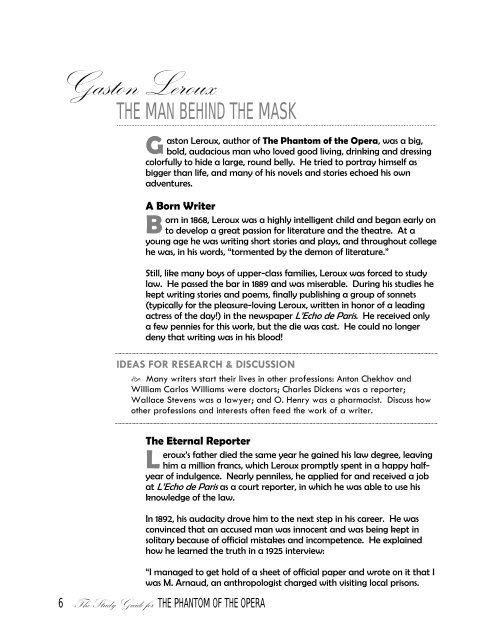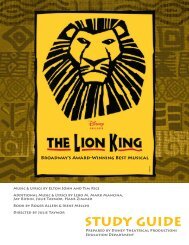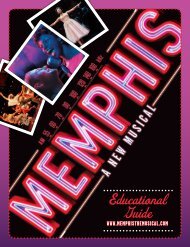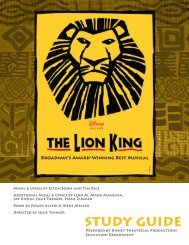Cameron Mackintosh And The Really Useful Theatre ... - Telecharge
Cameron Mackintosh And The Really Useful Theatre ... - Telecharge
Cameron Mackintosh And The Really Useful Theatre ... - Telecharge
Create successful ePaper yourself
Turn your PDF publications into a flip-book with our unique Google optimized e-Paper software.
Gaston Leroux<br />
THE MAN BEHIND THE MASK<br />
.......................................................................................................................................................................................................<br />
G<br />
aston Leroux, author of <strong>The</strong> Phantom of the Opera, was a big,<br />
bold, audacious man who loved good living, drinking and dressing<br />
colorfully to hide a large, round belly. He tried to portray himself as<br />
bigger than life, and many of his novels and stories echoed his own<br />
adventures.<br />
A Born Writer<br />
orn in 1868, Leroux was a highly intelligent child and began early on<br />
B<br />
6 <strong>The</strong> Study Guide for THE PHANTOM OF THE OPERA<br />
to develop a great passion for literature and the theatre. At a<br />
young age he was writing short stories and plays, and throughout college<br />
he was, in his words, “tormented by the demon of literature.”<br />
Still, like many boys of upper-class families, Leroux was forced to study<br />
law. He passed the bar in 1889 and was miserable. During his studies he<br />
kept writing stories and poems, finally publishing a group of sonnets<br />
(typically for the pleasure-loving Leroux, written in honor of a leading<br />
actress of the day!) in the newspaper L’Echo de Paris. He received only<br />
a few pennies for this work, but the die was cast. He could no longer<br />
deny that writing was in his blood!<br />
IDEAS FOR RESEARCH & DISCUSSION<br />
� Many writers start their lives in other professions: Anton Chekhov and<br />
William Carlos Williams were doctors; Charles Dickens was a reporter;<br />
Wallace Stevens was a lawyer; and O. Henry was a pharmacist. Discuss how<br />
other professions and interests often feed the work of a writer.<br />
<strong>The</strong> Eternal Reporter<br />
eroux’s father died the same year he gained his law degree, leaving<br />
L<br />
him a million francs, which Leroux promptly spent in a happy half-<br />
year of indulgence. Nearly penniless, he applied for and received a job<br />
at L’Echo de Paris as a court reporter, in which he was able to use his<br />
knowledge of the law.<br />
In 1892, his audacity drove him to the next step in his career. He was<br />
convinced that an accused man was innocent and was being kept in<br />
solitary because of official mistakes and incompetence. He explained<br />
how he learned the truth in a 1925 interview:<br />
“I managed to get hold of a sheet of official paper and wrote on it that I<br />
was M. Arnaud, an anthropologist charged with visiting local prisons.





